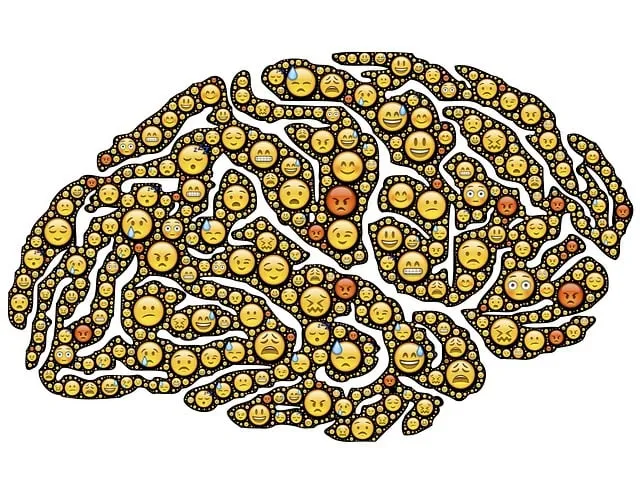In diverse societies like Denver, cultural competency is crucial in healthcare, especially for organizations like Denver Kaiser Permanente focusing on prominent mental health services. Training equips providers with insights into culture's impact on mental health, enhancing patient outcomes by improving communication, building trust, and offering tailored support. The Mental Health Initiative prioritizes resilience building and access to services via community outreach. Comprehensive training strategies include self-awareness exercises, podcasts, and public awareness campaigns. Evaluations track improvements in provider skills and patient satisfaction, fostering a more inclusive healthcare environment for Denver Kaiser Permanente's diverse mental health needs.
Healthcare provider cultural competency training is an increasingly vital aspect of modern medical practice. Understanding and respecting diverse cultural backgrounds is essential for delivering effective, patient-centered care. This article explores the significance of cultural competency, using Denver Kaiser Permanente’s Mental Health Initiative as a case study, highlighting its impact on patient outcomes. We discuss proven training strategies and methods for healthcare providers, along with metrics for evaluating successful cultural competency programs, focusing on the key insights from Denver Kaiser Permanente mental health initiatives.
- Understanding Cultural Competency in Healthcare: A Necessary Approach
- Denver Kaiser Permanente's Mental Health Initiative: A Case Study
- The Impact of Cultural Awareness on Patient Outcomes
- Training Strategies for Healthcare Providers: Effective Methods
- Measuring and Evaluating Cultural Competency Programs
Understanding Cultural Competency in Healthcare: A Necessary Approach

In today’s diverse society, cultural competency within healthcare is no longer a nice-to-have but an absolute necessity. Understanding and appreciating the cultural nuances of patients and communities is essential for delivering effective and equitable care, especially in urban centers like Denver where Kaiser Permanente mental health services play a pivotal role. This approach ensures that every patient receives respectful, culturally sensitive treatment tailored to their unique background, beliefs, and experiences.
By integrating cultural competency training, healthcare providers gain valuable insights into the impact of culture on mental health and well-being. This includes recognizing how historical trauma and systemic injustices can affect individuals and communities, a crucial consideration when addressing mental health concerns. Moreover, such training equips professionals with the skills to navigate complex communication challenges, build trust with diverse patient populations, and offer tailored support services like Trauma Support, thereby enhancing overall patient outcomes and satisfaction.
Denver Kaiser Permanente's Mental Health Initiative: A Case Study

Denver Kaiser Permanente has made significant strides in addressing mental health concerns through its dedicated Mental Health Initiative. This case study highlights their comprehensive approach, which involves a multi-faceted strategy to enhance cultural competency among healthcare providers. The program focuses on increasing access to mental health services within the community, targeting underserved populations.
One of its key components is the Community Outreach Program Implementation, where trained professionals engage with diverse communities to raise awareness and reduce stigma associated with mental health issues. Additionally, the initiative emphasizes Resilience Building through workshops and educational sessions, empowering individuals to manage stress and overcome challenges. The program also promotes Self-Care Routine Development for Better Mental Health, ensuring healthcare providers and patients alike prioritize their well-being. This holistic approach has led to improved patient outcomes and a more inclusive healthcare environment in Denver Kaiser Permanente’s network.
The Impact of Cultural Awareness on Patient Outcomes

In healthcare, cultural awareness is a cornerstone for delivering quality patient care. It involves understanding and appreciating diverse cultural backgrounds, beliefs, and values within the patient population. For organizations like Denver Kaiser Permanente, focusing on mental health services, this means recognizing that patients’ experiences and preferences can vary significantly based on their cultural identities. By fostering cultural competency, healthcare providers can improve patient outcomes by building stronger relationships, enhancing communication, and ensuring tailored care plans.
Cultural awareness translates into better engagement with patients, which is crucial for effective treatment, especially in mental health practices. Empathy-building strategies, such as active listening and adapting communication styles, can significantly reduce miscommunication and mistrust. Moreover, public awareness campaigns development that highlight cultural sensitivity can help prevent burnout among healthcare workers while promoting a more inclusive environment. This holistic approach not only benefits individual patients but also contributes to the overall success of healthcare systems like Denver Kaiser Permanente in addressing diverse mental health needs.
Training Strategies for Healthcare Providers: Effective Methods

Healthcare provider cultural competency training involves a multifaceted approach to ensure effective care for diverse patient populations. One proven strategy is incorporating Self-Awareness Exercises that encourage providers to reflect on their own biases and assumptions, fostering a deeper understanding of different cultural perspectives. These exercises can include scenario-based role-playing, where providers navigate complex interactions with simulated patients from various backgrounds.
Additionally, the integration of Mental Wellness Podcast Series Production has emerged as a powerful tool. Engaging podcasts focused on mental health issues within diverse communities can enhance training by providing real-world insights into cultural nuances and challenges. This method allows providers to access content at their own pace, promoting continuous learning. Moreover, developing Public Awareness Campaigns Development targeting specific cultural groups can complement training by raising awareness about mental health issues within those communities, leading to improved patient engagement and outcomes.
Measuring and Evaluating Cultural Competency Programs

Evaluating the effectiveness of cultural competency training is crucial for healthcare providers to ensure its impact on patient care and outcomes. Measuring success goes beyond simple satisfaction surveys; it involves assessing changes in provider attitudes, behaviors, and knowledge related to cultural competence. Organizations like Denver Kaiser Permanente’s mental health division have developed robust evaluation frameworks that include pre- and post-training assessments, direct observation of clinical interactions, and feedback from both providers and patients.
These evaluations often incorporate tools such as self-assessment questionnaires, focus groups, and structured interviews to gauge improvements in areas like communication skills, empathy, and ethical decision-making related to cultural differences. By tracking these metrics over time, healthcare systems can identify program strengths and weaknesses, inform ongoing training improvements, and ultimately contribute to the prevention of burnout among providers while enhancing patient satisfaction and mental health awareness through effective conflict resolution techniques.
Healthcare provider cultural competency training is no longer a choice but an imperative. As demonstrated by Denver Kaiser Permanente’s Mental Health Initiative, which saw significant improvements in patient outcomes, cultivating awareness and sensitivity to diverse cultures can revolutionize care. By implementing effective training strategies and measuring program impact, healthcare organizations can ensure they are providing culturally competent services that resonate with every patient. This approach not only enhances satisfaction but also fosters better health outcomes for a more inclusive and equitable society.






